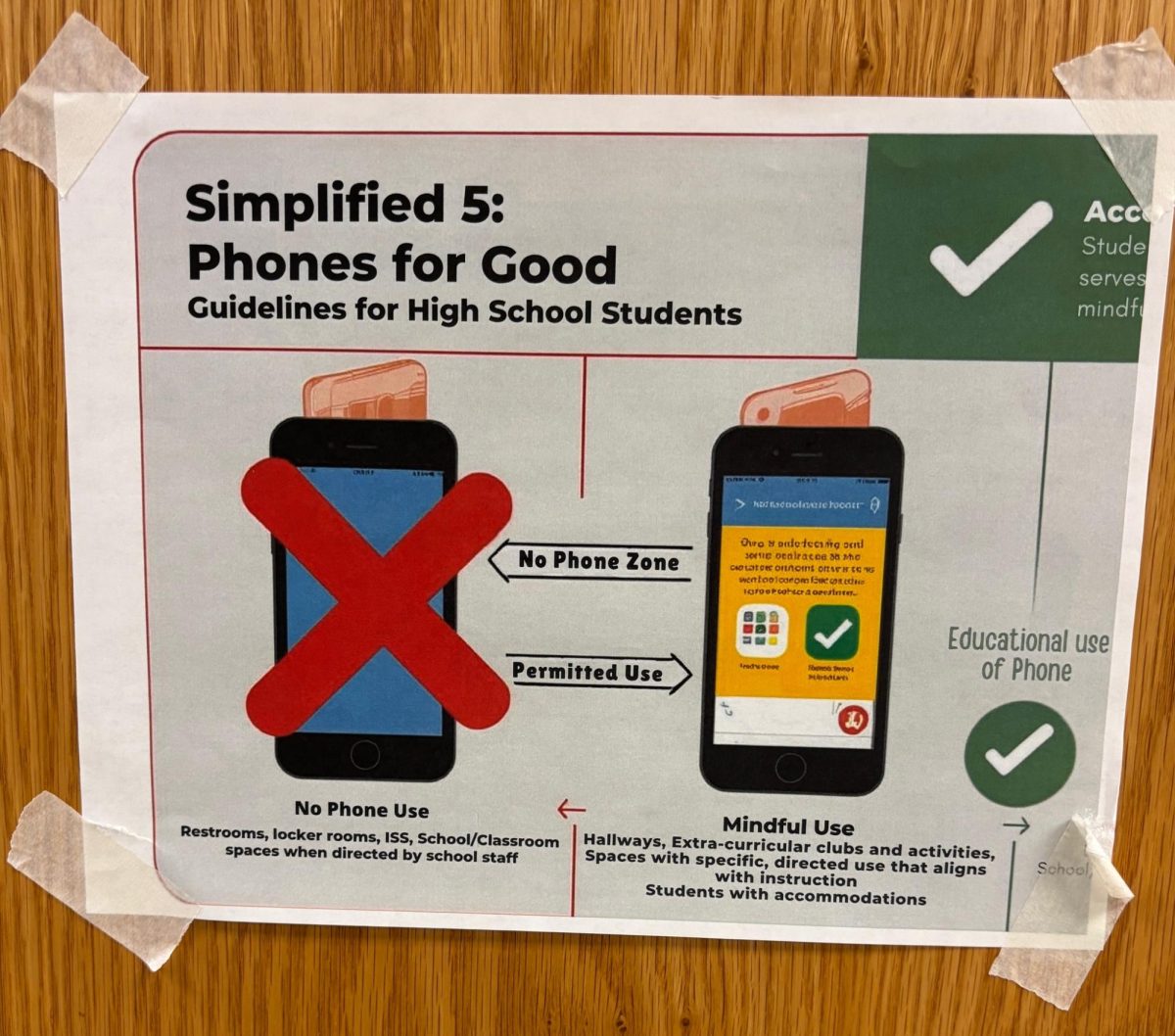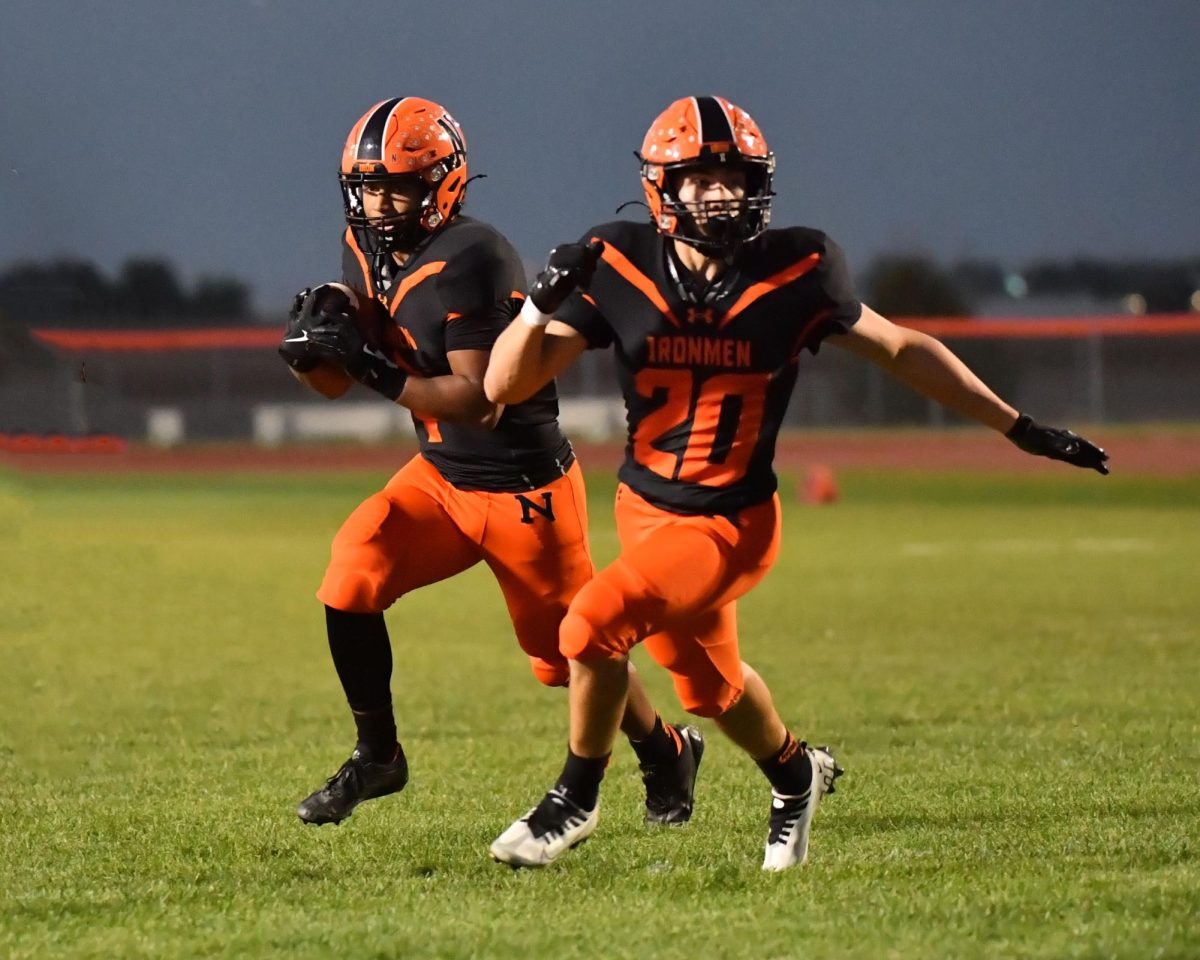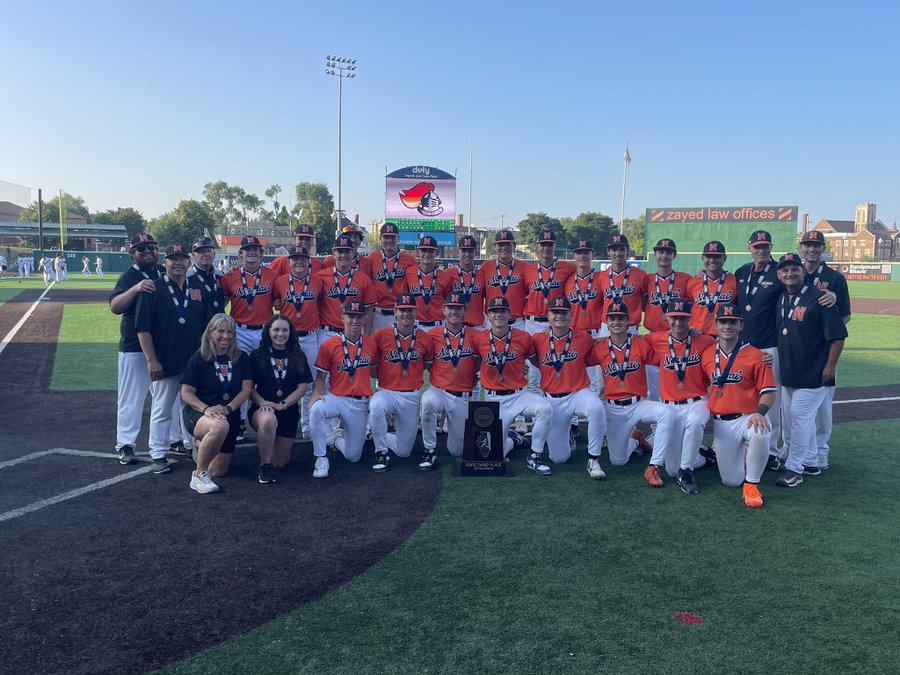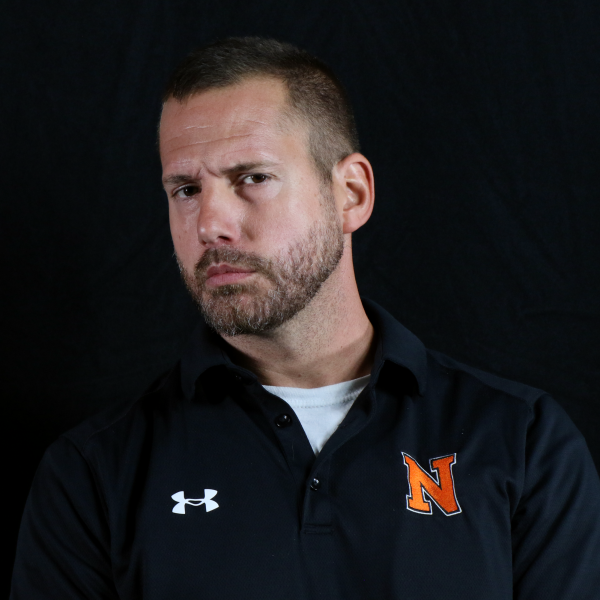Last season, Ironmen football left fans breathless.
Undefeated in Big 12 Conference play. A 10-2 record. A 7A IHSA State Quarterfinals appearance. Nearly toppling Mount Carmel—a program that’s long stood as a titan of Illinois high school football.
The wins? Impressive.
The roster? Stacked—with speed, size and skill.
But the edge, the difference-maker, according to Ironmen head coach Mr. Jason Drengwitz, is something far less visible, but no less vital.
Breath work.
It’s not a motivational cliché or sideline catchphrase. It’s science. It’s strategy. And it’s become part of the Ironmen playbook.
“We didn’t handle some tight situations well” in 2023, Drengwitz said. “We had the talent. But mentally—emotionally—I felt like we needed more.”
So, the Ironmen added mindfulness to the offseason.
Not weight room reps. Not chalk talk.
Breathing.
“We felt we really struggled at times with adversity,” Drengwitz said. “We talked about it, but we didn’t give our guys any tools on how to refocus, recenter or calm down.”
So Drengwitz turned to an unlikely source for help: the South Dakota State football program.
Invited to visit the university ahead of the 2024 season, Drengwitz made the trip with three senior leaders—Brayden Malinowski, Kyle Beaty and Mar’Quan Gary—and left with more than recruiting notes.
It was at that visit, during a presentation by the Jackrabbits’ mental performance coach, Kris Kracht, that Drengwitz discovered the power of mindfulness and breath control in athletics.
“He started talking, and I was like, ‘this is awesome,’” Drengwitz said. “Totally what we were looking for.”
From that moment on, Ironmen football began incorporating structured breath work and emotional regulation practices into its weekly routine.
Ironmen players now start every Monday team meeting not with drills or film—but with hugs and affirmations.
“Everybody’s got to get up, give someone a hug, and tell them ‘I love you,’” Drengwitz said. “Not just ‘love you,’ or ‘love, Coach’—they have to say, ‘I love you.’”
The goal is connection, not comfort.
“It’s probably harder for some than others,” Drengwitz said. “We, as coaches, have to live it. We have to do it in order for our players to buy in.”
At practice, the team continues building that emotional toolkit through mindfulness sessions and structured breathing routines—modeled after military and performance psychology techniques.
Square breathing. Three-count breathing. Box breathing. Each method follows a similar pattern: inhale, hold, exhale—slow and deliberate.
The team practices breath work three times per week during the regular season. It’s built into pregame meetings, individual position work and even moments of in-game stress.
“After the coin toss, the first thing we do is three-count breathing,” Drengwitz said. “Hands up, eyes up, we do three rounds—inhale, hold, exhale—and then one more quick round at the top.”
The “two-clap response” provides another tool to process emotional swings in a game.
“The first clap is, ‘Shoot—I made a mistake,’” Drengwitz said. “The second is, ‘Next play—let’s go.’ Acknowledge it, then move on.”
The method has roots in neuroscience, he said—where poor body language or lingering frustration can trigger a chemical response in the brain, taking minutes to recover from physically and mentally.
On the sidelines last season, players and coaches alike embraced breath work in live game situations.
“In a tight game against Prospect, our offensive line came off the field during a timeout,” Drengwitz said. “Coach [Chris] Messina didn’t talk about plays—he just said, ‘Let’s breathe.’”
The team ran through three rounds of breathing before returning to the field.
“No one questioned it,” Drengwitz said. “No one said, ‘What are we doing?’ They locked in and did it.”
And they won.
The Ironmen repeated the ritual on defense later in the game.
In previous years, moments like those might have unraveled the team emotionally. But now, Drengwitz sees something different.
“I can look at a player and see calmness and control,” he said. “And they can look at me and see the same.”
As the head coach, Drengwitz knows his own composure sets the tone.
“I used to get really upset at officiating,” he said. “Now, I’ll take a couple rounds of three-count breathing myself.”
Drengwitz even built mindfulness into the coaching culture—presenting on the topic at the staff’s annual preseason clinic, then encouraging coaches to practice breath work with players throughout the summer and fall.
The goal, he said, isn’t just winning.
It’s a tool that the Ironmen have once they turn in their jerseys, unlace their cleats a final time.
It’s “something they can take with them,” Drengwitz said.
For the veteran coach, it’s the emotional tools that matter most when the clock hits zero—and football careers end.
“For 85, 90 percent of your roster, the last game is the last time they’ll ever play,” he said. “They may forget how to read a defense—but not how to control their emotions.”
The buy-in, Drengwitz said, started with his leaders. After he met with coaches from Nazareth Academy and studied other successful programs, he brought the ideas to his top ten returning seniors.
“If you guys aren’t on board, we’re not doing it,” Drengwitz told them.
“They were all about it.”
He credits that buy-in—and the emotional growth it sparked—for helping the Ironmen weather pressure-packed moments.
“Our guys are emotional,” Drengwitz said. “We all are. But if we can give them tools to handle emotions calmly, to focus and stay poised—it can change everything. Not just on the field, but in life.”
Drengwitz won’t claim to have invented the idea—but he believes in the results.
“I stole all of it,” he said, “from people way smarter than me.”
But for Drengwitz, who’s coached teams deep into the postseason, few accomplishments have felt more meaningful.
“That was probably one of the things I was most proud of,” he said.
Sure, Drengwitz stole it. What he’s built, though, is distinctly Community’s.
In a program that once relied on passion alone, players now take the field calm, connected—and ready to breathe.
And ready to win.






























![Week 5: Coach Drengwitz previews the Ironmen’s matchup vs. Peoria Manual, recaps Week 4 [video]](https://nchsinkspot.com/wp-content/uploads/2025/09/Week-5-v-Rams-1200x675.png)















![Halloween candy cross section quiz [quiz]](https://nchsinkspot.com/wp-content/uploads/2022/10/Candy-cover-big-900x675.png)
![Average Jonah? [quiz]](https://nchsinkspot.com/wp-content/uploads/2022/05/average-jonah-900x600.png)







![[Photo Illustration]](https://nchsinkspot.com/wp-content/uploads/2025/09/trigger-words.png)










![Postgame reaction: Coach Drengwitz on Community’s 28-17 Loss to Kankakee [video]](https://nchsinkspot.com/wp-content/uploads/2025/09/Week-4-postgame--1200x675.png)
![Week 4: Coach Drengwitz previews the Ironmen’s matchup vs. Kankakee [video]](https://nchsinkspot.com/wp-content/uploads/2025/09/Ironmen-v-Kankakee-video-1200x1200.png)
![Week 3: Coach Drengwitz previews the Ironmen’s matchup vs. Urbana [video]](https://nchsinkspot.com/wp-content/uploads/2025/09/week-3-web-1200x1200.png)





![On the Spot: This or That – Halloween [video]](https://nchsinkspot.com/wp-content/uploads/2024/10/tot-Halloween-YT-1200x675.png)
![On the Spot: This or That – Fall favorites [video]](https://nchsinkspot.com/wp-content/uploads/2024/10/ots-fall-web-1200x800.png)
![On the Spot – Teachers tested on 2023’s hottest words [video]](https://nchsinkspot.com/wp-content/uploads/2024/01/On-the-Spot-Teachers-tested-1200x675.png)








